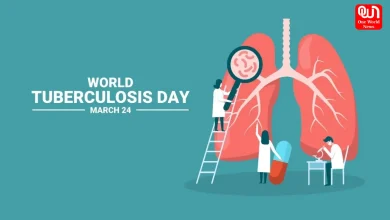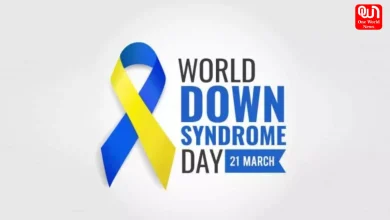Is a 24-Hour Fast Safe for Weight Loss? Expert Sheds Light on Benefits and Risks
Is a 24-hour fast safe for weight loss? Experts explain the science, benefits, and risks of fasting to help you make an informed health decision.
Is a 24-Hour Fast Safe for Weight Loss? Expert Sheds Light on the Science, Benefits, and Potential Risks of Fasting for Healthy Weight Management
Fasting has become one of the most discussed health trends in recent years. Among the many fasting methods, the 24-hour fast has gained popularity as a quick and effective strategy for weight loss. But is a 24-hour fast safe for weight loss? Experts reveal that while short-term fasting can offer benefits, it’s not suitable for everyone. Understanding how the body reacts during a 24-hour fast and following it correctly is essential for safe and sustainable results.
Understanding the Concept of a 24-Hour Fast
What Is a 24-Hour Fast?
A 24-hour fast involves abstaining from all calorie intake for a full day, typically from dinner to dinner or breakfast to breakfast. During this time, individuals consume only water, black coffee, or unsweetened tea. This type of fasting falls under the broader category of intermittent fasting, where the body alternates between eating and fasting periods.
How It Affects the Body
During a 24-hour fast, the body uses up stored glucose for energy within the first 8 to 12 hours. Once glucose stores deplete, it shifts to burning fat as a primary energy source, leading to fat breakdown and potential weight loss. This process, known as ketosis, is one of the main reasons people use fasting for fat reduction and metabolic health improvement.
The Science Behind 24-Hour Fast Weight Loss
Boosts Fat-Burning Potential
A 24-hour fast weight loss approach promotes fat oxidation. When insulin levels drop during fasting, the body accesses fat stores for energy. Over time, this can lead to reduced body fat percentage and better weight management.
Enhances Metabolic Health
Fasting for 24 hours can improve insulin sensitivity and reduce blood sugar levels. According to studies, periodic fasting helps regulate hormones involved in hunger and metabolism, such as ghrelin and leptin, which may prevent overeating.
Promotes Cellular Repair
A longer fasting window triggers a process called autophagy, where the body cleans out damaged cells and regenerates healthier ones. This process supports better digestion, reduced inflammation, and potentially slows down the aging process.
Benefits of a 24-Hour Fast
Weight Loss and Calorie Control
One of the primary benefits of a 24-hour fast weight loss plan is reduced calorie intake. Skipping meals for a full day naturally creates a calorie deficit, which helps in gradual and healthy weight loss when done safely.
Improved Mental Clarity and Focus
Many people report increased mental alertness during fasting. With stable blood sugar levels and reduced insulin spikes, the brain functions more efficiently, leading to better concentration and focus.
Heart Health Support
Fasting can help lower cholesterol, triglycerides, and blood pressure levels. Research suggests that periodic fasting supports cardiovascular health by improving lipid metabolism and reducing oxidative stress.
Potential Risks and Side Effects
Dehydration and Fatigue
Extended fasting without adequate hydration can cause fatigue, dizziness, or headaches. It’s essential to drink plenty of water and electrolytes during a 24-hour fast to maintain energy and hydration.
Nutrient Deficiency
If fasting is practiced too frequently without balanced nutrition during eating periods, it may lead to deficiencies in essential vitamins and minerals. Experts recommend including nutrient-rich foods in meals after breaking the fast.
Read more: Perimenopause Awareness: Understanding the Silent Phase Before Menopause
Hormonal Imbalance in Certain Individuals
Women, in particular, may experience hormonal fluctuations due to prolonged fasting. People with diabetes, low blood pressure, or eating disorders should avoid a 24-hour fast without medical supervision.
Expert Advice for Practicing a 24-Hour Fast Safely
Consult a Health Professional
Before attempting a 24-hour fast weight loss plan, consult a healthcare professional or nutritionist. Individual health conditions, medications, and metabolic rates differ, and professional guidance ensures safety.
Stay Hydrated
Hydration is crucial during fasting hours. Drink water, herbal teas, or black coffee to support metabolism and prevent dehydration. Avoid sugary drinks or flavored beverages that may break the fast.
Ease Into Fasting
If you’re new to fasting, start with shorter fasting intervals like 14 or 16 hours and gradually extend to 24 hours. This helps your body adapt to the change without causing stress or fatigue.
Choose Nutrient-Dense Foods
When breaking your fast, focus on balanced meals rich in proteins, healthy fats, fiber, and micronutrients. Avoid overeating or indulging in processed foods, which can counteract the benefits of fasting.
Who Should Avoid a 24-Hour Fast
People with Medical Conditions
Individuals with diabetes, eating disorders, or chronic health issues should not attempt fasting without medical supervision. The sudden drop in blood sugar may cause dizziness or hypoglycemia.
Pregnant or Breastfeeding Women
Pregnant and breastfeeding women require consistent nutrient intake to support their health and the baby’s development. Fasting can deprive the body of essential nutrients during this crucial period.
Read more: Magnesium Craze Sweeps The World: Does It Really Help You Sleep Better?
Athletes and High-Performance Individuals
Those with high physical activity levels may experience weakness or reduced stamina during fasting. Experts recommend a customized nutrition plan to meet energy demands.
Conclusion
A 24-hour fast can be an effective method for weight loss and metabolic improvement when practiced responsibly. However, it’s not a one-size-fits-all approach. Consulting a healthcare professional, maintaining hydration, and focusing on nutrient-rich meals post-fast are key to making it safe and beneficial. When done correctly, a 24-hour fast weight loss plan can support fat reduction, improve energy, and enhance overall health. Always remember—sustainable health is about balance, not deprivation.
We’re now on WhatsApp. Click to join.
Like this post?
Register at One World News to never miss out on videos, celeb interviews, and best reads.








